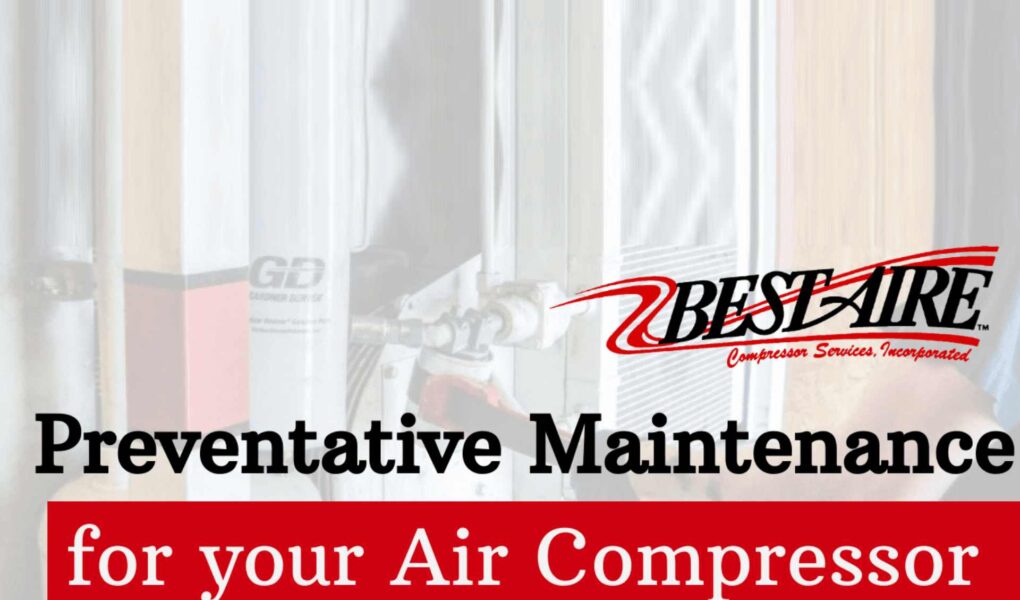Air compressor maintenance can be categorized into two types of routines – Minor Preventative Maintenance and Major Preventative Maintenance. Minor PMs are usually scheduled 1-3 times a year, while Major PMs are scheduled every 1-2 years, depending on the number of hours the compressor runs and the level of ambient dirtiness. To keep your unit in good working condition, you need to perform the following air compressor maintenance tasks:
- Change the air filter every 2,000 hours to make sure your filters can capture particulate matter and prevent contamination, while not restricting flow
- Change the oil filter to capture dirt and grime and ensure proper lubrication and cleaning of the air-end.
- Take an oil sample for analysis to check for external or internal contamination that could cause component malfunctioning.
- Evaluate the dryer’s overall health to ensure it’s functioning correctly.
- Clean the cooler, which is often overlooked but critical for regulating oil and air temperatures and preventing damage downstream.
- Inspect and tighten electrical connections to prevent shorts or shutdowns caused by wire vibrations.
- Inspect drains and inline filters to ensure they’re flowing correctly and free of restrictions.
- Clean the condenser to ensure it’s cooling the air properly.
- Change the cabinet mat (if applicable) to avoid overheating and restricted airflow caused by a clogged mat.
- Check controls for maintenance reminders and error alerts.
- Change the oil/coolant every year, every 8,000 hours, or as recommended by your service provider.
- Change the air/oil separator to avoid clogging or collapsing, which could lead to oil carryover and pressure drop, or even a fire.
- Grease the motor regularly, following the manufacturer’s recommendations.
- Test all safety valves to ensure they’re working correctly and prevent over-pressurization and damage to your system.
- Examine hoses and piping regularly to detect cracks and ensure efficient operation.
In addition, the technician will inspect your system and provide service recommendations to our service staff if any issues are detected.



